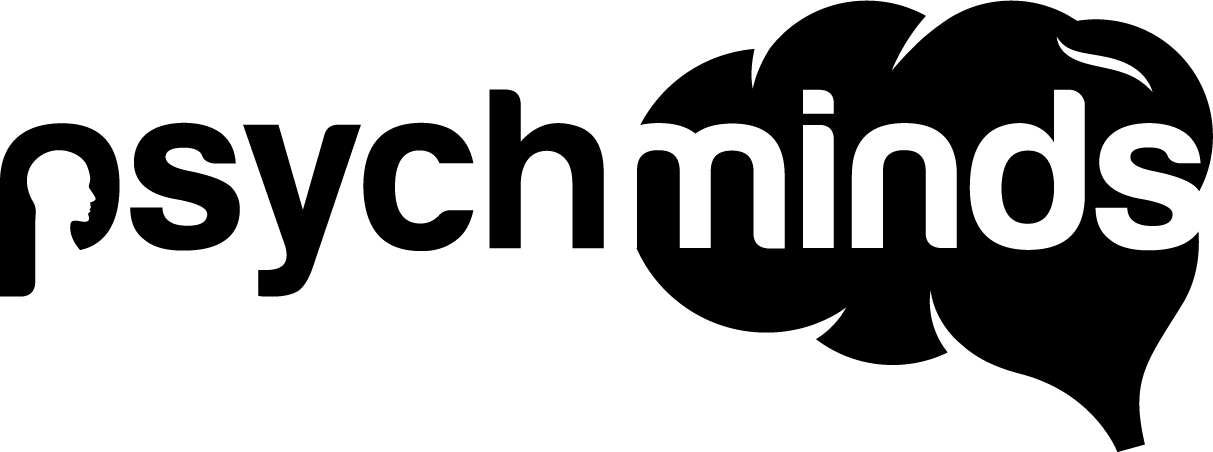COVID-19, the novel strain of coronavirus, is affecting everyone worldwide. Thousands have died and thousands more have contracted this strain of coronavirus. Hospital beds are overrun leaving medical facilities unable to cope. The pandemic is clearly a very real problem. However, it must be asked, how much are the current restrictions, social distancing, fear mongering helping or harming us on an individual, societal and global level?
This article looks at the medical, political, economic, social, and psychological impacts our reaction to coronavirus will have on us and future generations. It will examine the unintended consequences these forced restrictions will have which could extend long after this strain of coronavirus peters out and recedes into history.
The Medical Side of COVID-19
Coronavirus has multiple strains which infect millions of people every year. Based on the most recent Situation Report, posted on the World Health Organization (WHO), the total infected cases worldwide are 693,224 while total deaths are 33,106. At face value, these statistics look daunting, terrifying, and even apocalyptic. However, the simple truth is, they aren’t. Based off information posted on the WHO, the majority of people who contract this virus will face mild symptoms, suffer through a brief period of illness and then recover. Older people and those with pre-existing medical conditions, such as cardiovascular disease, chronic respiratory disease or diabetes are at a higher risk for contracting and having more severe symptoms, which could possibly be fatal. Therefore, precautions are necessary. However, how do we know when the precautions have gone too far?
Those who would give up essential Liberty, to purchase a little temporary Safety, deserve neither Liberty nor Safety
BENJAMIN FRANKLIN
Moreover, there is an important distinction to make within these statistics. How many of those thousands are dying of COVID-19 or with COVID-19? COVID-19 may exacerbate underlying medical conditions; however, it is important to make that distinction. If a cancer patient catches a common cold and sadly passes away a week later, did they pass away due to the cancer in their system or the common cold?
COVID-19 in Politics
Throughout history revolutions have been fought, battles launched, uprisings invoked for the sake of liberty. Benjamin Franklin, one of the Founding Fathers of the United States, is known to have said, “Those who would give up essential Liberty, to purchase a little temporary Safety, deserve neither Liberty nor Safety.” Is this not what we, as a global community, have done? For the perception of safety, the public has pressured governments to increase restrictions, impose what is essentially house arrest, curfews and fines for not abiding by those restrictions.
People have been forced into unemployment and had their rights as to where they want to walk, take exercise, breathe fresh air curbed. In many shops, pharmacies and supermarkets that are still open, people are forced to undergo temperature checks, wear masks, gloves, and shoe covers. Technology is being used to track who you are in contact with. Drones have the ability to take temperatures from the sky, follow targets around, hover outside windows waiting for compliance with the mandated temperature check. Is this what a free society looks like?
Returning to Benjamin Franklin’s quote, the essential meaning is clear. Under no circumstances should we give up our individual liberties to the state. The implications are far reaching and dangerous. We are already seeing over-zealous police in India beating people with batons as a means to enforce restrictions. In the United Kingdom, the Derbyshire police have been using bullying tactics as well as wrecking walking areas to deter people from leaving their houses. The police are taking it upon themselves to create the law rather than carry it out. However, for how long will people be allowed to leave their house for exercise at all? Will this become restricted as well?
From the times of the Ancient Greeks until today, democracy has been viewed as essential in ensuring a fair and just government that truly represents the people. What we are seeing happen in front of our very eyes is our democratic ideals devolving into a technocratic state, whereby scientists are being given elevated status and power. At its core, technocracy is when elite technical experts gain control in government and society. While as an ideology, technocracy may seem viable since experts surely know what they are talking as well as have data to back decisions. Therefore, supposedly they can make pure, unbiased decisions for the good of the people.
It goes without saying that is not the case. Even if data is unbiased, who is to say the interpreter is unbiased? Humans are largely irrational creatures, scientists included. Nothing can replace the people’s voice and their right to vote and have a say in governmental proceedings. Statistics and data can easily be manipulated, bent and twisted into any shape or form. Therefore, our degeneration into a police state run by technocrats is indeed a worrying one.
How long will our individual liberties continue to be put on hold? When will we be able to make the choice to leave our house without being incited as a social pariah? As social distancing measures extend and restrictions increase, unfortunately the end is not in sight.
A Psychological Analysis of the Situation
As stated before, COVID-19 is real. The problem is real. But are our fears, anxiety and downright panic proportional to that reality? Hysteria is a psychological phenomenon well documented in history, dating back as far as the Ancient Egyptians. Mass hysteria is an extreme form of groupthink, which occurs when a group reaches an opinion which then attains general consensus without being critically appraised, examined or reviewed. It encourages copy-cat behaviour and discourages any outward signs of individuality. In more extreme forms, not only does it discourage individuality, free thought and opinion, it vilifies it.
Psychologist Irving L. Janis identified eight symptoms of groupthink, including illusions of invulnerability, unquestioned beliefs, rationalizing, stereotyping, self-censorship, “mind guards,” illusions of unanimity, and direct to pressure. All of these are applicable to the COVID-19 situation, with invulnerability being replaced with extreme vulnerability, as everyone thinks they will not only catch but also die from COVID-19, which according to the WHO, is not likely to happen in the majority of cases.
Mass hysteria feeds off emotional reactions and illogical thinking. It is being spread and perpetuated through the news and media. The reaction to the coronavirus has been extreme. It is understandable that when faced with uncertainty, we desire answers, stability, and an explanation of sorts. More than that, we desire control. We want to be able to control the situation. This explains why en masse people have snaffled up face masks, bought tubs of hand sanitizer, shackled themselves within their houses and will only be in contact with another human as long as it is through a screen. People are doing things they can control when it comes to the coronavirus. As stated, this is understandable. However, when governments and police step in and enact martial law, how far does our control go? Do we now control when these restrictions will end, restrictions that the public almost begged for? Do we control the extremities to which the government and police may enforce these measures? Who is to say when (or even more worryingly, IF) these restrictions will ever be removed?
Moreover, have we thought of the consequences for people who don’t have stable homes? Have we taken into consideration the potential deaths from abuse, exacerbated alcoholism, depression and suicide that this fear of the virus, enforced self-containment and unemployment is causing? What about the routine doctor’s appointment’s that will be missed, the mammograms, the screenings, the check-ups that will no longer be occurring as doctors are refusing to see anyone who does not exhibit a cough, fever or other symptoms relating to the coronavirus? Due to lack of early intervention and medication, thousands could die as a result.
COVID-19’s Impact on the Economy
With the global economy ground to a stand-still, the implications are catastrophic. Families are losing income, businesses are suffering and many people have been forced into unemployment. In America, 3.3 million Americans have filed for unemployment. This far surpasses a previous record high in October 1982 of 695,000. Although President Trump is promising to push through a 2 trillion dollar package to help taxpayers, this is not a long term solution. People need to get back to work and get the economy going again.
According to the Bureau of Labour Statistics, only a third of the workforce in the country is able to work remotely from home. What becomes of the rest? It appears we are being catapulted into a recession where depression, crime and poverty will become the new norm.
Moreover, pandemics are more likely to occur with our jet-setting lifestyle, exotic trade routes, increased contact with varying ecosystems, increased population and overly crowded cities. Does this mean every time there is a new virus, the economy will come to a halt? We need to consider the implications for future generations. If money is no longer being pumped into the economy through regular, honest work, we will see the deterioration of the healthcare system in its entirety. The healthcare system does not exist because it should. It is not the right of the people. It exists because there is money allowing it to exist and funding its expenses. Without that money, even if individual people can afford vaccines (which many won’t due to the lack of employment opportunities), the healthcare system itself may not be able to make and produce them. If this comes to pass, we will see the return of ancient diseases which have been known to kill people in the millions.
Conclusions for COVID-19
Although the situation in the here and now seems daunting whereby we want to do all in our power to defeat COVID-19, we need to look at this situation from all angles. We need to look at the far reaching consequences our actions today will have on future generations. Whilst it is crucial for us to follow precautions, cleanliness and hygiene guidelines, it is equally important for us to hold on tightly to our civil liberties and understand the stories behind the statistics being presented to us. On that note, Keep Calm. Keep Perspective. And Keep Questioning. COVID-19 will not last forever, but the consequences might last a lifetime and more.
Last updated: March 31, 2020
References
O’Carroll, L. (March 30, 2020). Covid-19: ex-supreme court judge lambasts ‘disgraceful’ policing. The Guardian. Retrieved March 31, 2020, from https://www.theguardian.com/world/2020/mar/30/covid-19-ex-supreme-court-judge-lambasts-disgraceful-policing
World Health Organisation. (March 30, 2020). Coronavirus disease (COVID-2019) situation reports. Retrieved March 31, 2020, from https://www.who.int/emergencies/diseases/novel-coronavirus-2019/situation-reports
Worldometer. (February 29, 2020). Age, Sex, Existing Conditions of COVID-19 Cases and Deaths. Retrieved March 31, 2020, from https://www.worldometers.info/coronavirus/coronavirus-age-sex-demographics/
LePan, N. (March 14, 2020). History of Pandemics. Visual Capitalist. Retrieved March 31, 2020, from https://www.visualcapitalist.com/history-of-pandemics-deadliest/
Fritscher, L. (November 25, 2019). How Mass Hysteria Is Related to Groupthink. Very Well Mind. Retrieved March 31, 2020, from https://www.verywellmind.com/understanding-groupthink-2671595
Hale, K. (March 17, 2020). The Economic Impact Of COVID-19 Will Hit Minorities The Hardest. Forbes. Retrieved March 31, 2020, from https://www.forbes.com/sites/korihale/2020/03/17/the-economic-impact-of-covid-19-will-hit-minorities-the-hardest/#35ded47110c0
Holpuch, A., & Rushe, D. (March 26, 2020). Record 3.3m Americans file for unemployment as the US tries to contain Covid-19. The Guardian. Retrieved March 31, 2020, from https://www.theguardian.com/business/2020/mar/26/us-unemployment-rate-coronavirus-business
Image Credit: Hello Doctor. (June 17, 2019). What exactly is a virus? Retrieved March 31, 2020, from https://www.hellodoctor.co.za/what-exactly-is-a-virus/















